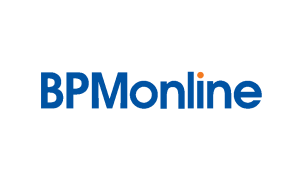Technology advancement means that almost every person has a smartphone, transforming how businesses communicate. Utilizing the tools for communication and cybersecurity aids in running a successful enterprise and protecting the sensitive data of your company and your clients. However, communication needs to include office, travel ability, and remote working continuously to get it right. Also, it’s possible for hackers to cause companies significant losses in the event of the theft or loss of personally identifiable information. But with excellent management, communication technology, and cyber security benefits businesses every day. Here is what you need to improve your communication technology and the cyber security of your business.
Awareness of Risks
The biggest mistake you could possibly make when it comes to cybersecurity is not acknowledging the risks. A lot of business owners and managers make the incorrect assumption that no one out there wants their data.
Any company is a potential target for hackers and cyber thieves. You inevitably have sensitive details about your own company’s banking information, along with payment information from clients. You need to understand how potentially valuable this information is to outside parties and protect it accordingly.
Flexibility in Devices
Communication between employees and clients has advanced, leaving formal communications through emails or company work phones. Businesses now encourage personal mobile phones usage to ensure communication regardless of employees’ remote locations. It aids in productivity as it works efficiently. Security audits through the IT department periodically ensure that the business does not have any breaches.
Ideal Transmissions
Poor communications tools in a business lead to miscommunication between employees. It results in poor customer experience and eventually loss of business. Introducing web-based communications software aids in communication. If traditional means are still in use, the inclusion of a device such as a millibox ensures smooth instantaneous communication. This would help you best set your equipment for the best signal.
Installation of Antivirus Programs
Perhaps one of the first things to do to start taking cybersecurity seriously at your workplace is to have good antivirus software installed on all your company computers.
Antivirus software, including firewalls, blocks malicious viruses and prevents them from establishing themselves and growing on devices. Do some research and find the right software for your unique needs because there are many options out on the market at this point.
Automation
Repetitive tasks done by employees are a wastage of time and resources. By automating repetitive tasks, a business increases productivity by speeding up processes. Employees, therefore, focus on more essential tasks. However, data storage and data backing are necessary for the auditing tasks done to eliminate redundancy.
Management of Passwords
Password management is another essential aspect of cybersecurity. Good password management should involve regularly changing passwords and using passwords that are not as predictable as the user’s birth date, for example.
You need to train staff members on proper password management to make sure that staff members are using strong passwords that will not be easy to discover or hack through.
Transfer of Sensitive Data
You need to be careful of what methods you use for transferring sensitive data. It’s best to always avoid sending sensitive data through text messages. If you need to send sensitive data through email, make sure that the message is encrypted.
Marketing
The best thing about technology is the increase in exposure it offers for a business. By using different social media platforms, an enterprise aggressively markets its brand. By focusing on the content, a brand used correctly attracts new customers. Aligning traditional means of marketing like mailing and newspapers with new marketing strategies offers a competitive edge for the business. With a creative team, it is possible to save on marketing budget and time in advertising by marketing where the customers mostly are.
Software Updates
All of your software needs to be up-to-date whenever updates are available to maintain cybersecurity. Don’t think that updates are only necessary for your antivirus software.
In fact, software updates typically include updates to security features, so all updates can potentially help protect against cybersecurity attacks. Make sure to manually check for these at least once a week to ensure there isn’t anything being missed. There are times when the companies of your office programs and other hardware issue statements about patches being released because there is some exploitation of code within the software and it needs to be fixed as soon as possible. With that, keep your ear to the ground and do a quick search to see if anything has been released in the news about any hardware or software regularly used by you or any employees.
Opening of Emails
Your practices for opening emails have a big impact on how secure your data is. One of the most common ways cybersecurity attacks are made is through emails.
Your employees should be trained to properly scrutinize emails and lookout for signs of possible phishing scams. In particular, employees need to know that asking for any sensitive details in an email is a sign of a possible social engineering attack from a cybercriminal.
Educate
Depending on the type of business you run, technology isn’t only for communication. With new technology services coming up, it’s vital to educate all employees on how they work and incorporate them. It aids in sharpening skills, making work more manageable, especially in the finance and marketing sectors. A business increases its consumer base to handle more work effectively, helping its expansion.







